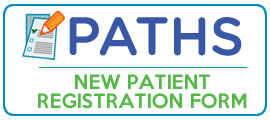What does a health educator do?
Health educators work with individuals, organizations, and communities to bring about behavioral and environmental changes that foster good health. They apply theories and principles of behavioral and social sciences to design, organize, implement, communicate, and evaluate the effects of education programs and strategies related to health behaviors of individuals, families, organizations, and communities.
What might a health educator do in a workday?
Health educators:
- assess the health needs of individuals or groups by collecting and analyzing information about health status, social, and cultural environments, needs and interests, and available resources.
- provide individual health counseling and referrals.
- research, design, and present health education programs to increase knowledge, modify attitudes, and adopt healthy behaviors.
- develop educational curricula for a variety of settings and learners.
- facilitate discussion and decision-making within groups.
- serve as a resource for health information and as consultants for those requesting assistance in solving health-related problems.
Health educators may specialize according to a health concern, illness, or work setting.
- Community public health educators focus on public health issues.
- School and college health educators teach health education courses and conduct health promotion campaigns.
- Patient and family health educators work primarily with other health care professionals in hospitals, clinics, and health maintenance organizations.
- Work-site health educators and wellness directors plan and manage on-the-job health promotion programs.
How much does a health educator earn?
- $35,000 - $55,000
How do I become a health educator?
Students interested in becoming health educators should take the most challenging high school courses available in English, science, speech, and math. They should seek accredited undergraduate- (bachelor’s degree) and graduate-level programs in health education and public health.
Certified health education specialists also must pass a written exam. Special licensing is required for health educators who become classroom teachers.
Where else can I learn about becoming a health educator?
American Public Health Association
800 I Street N.W. / Washington, DC 20001
tel: (202) 777-2742 (APHA) / web: www.apha.org
Virginia Public Health Association
2415 Westwood Avenue / Richmond, VA 23230
tel: (804) 767-7230 / web: www.vapha.org
American Alliance for Health, Physical Education, Recreation and Dance
1900 Association Drive / Reston, VA 20191-1598
tel: (800) 213-7193 or (703) 476-3400 / web: www.aahperd.org
Society for Public Health Education
10 G. Street, N.E., Suite 605 / Washington, DC 20002
tel: (202) 408-9804 / web: www.sophe.org
Educational Institutions in Virginia for Health Educators:
- Eastern Virginia Medical School
- Hampton University
- James Madison University
- Liberty University
- Lynchburg College
- Mary Baldwin College
- Marymount University
- Old Dominion University
- Radford University
- Roanoke College
- University of Mary Washington
- University of Virginia
- Virginia Commonwealth University
- Virginia State University
- Virginia Tech
- Walden University


